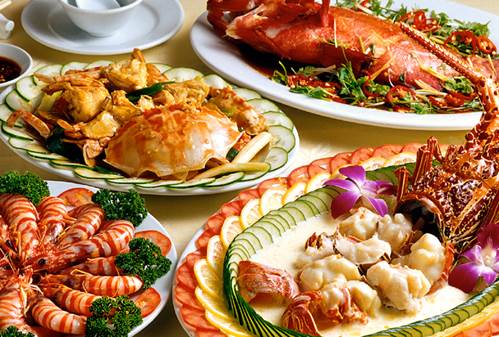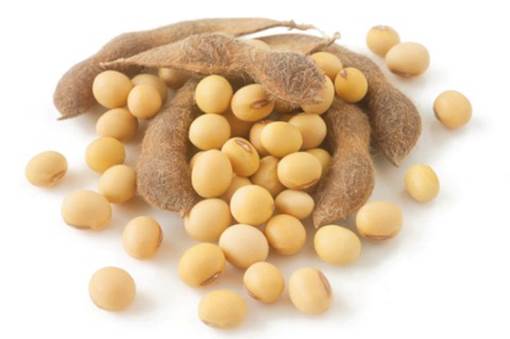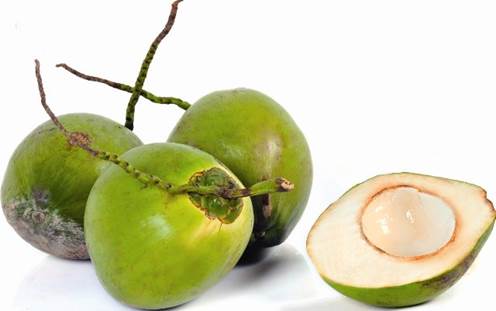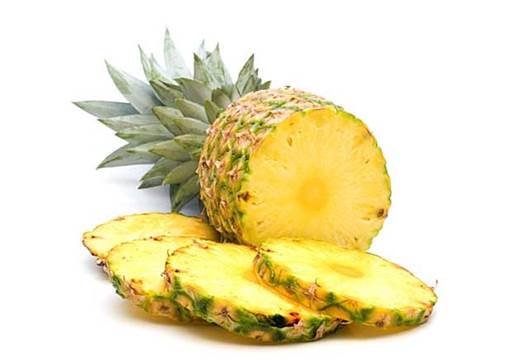Mothers think that some foods are safe for
babies; however, they are very dangerous.
Actually, foods for babies need to have
diversification so that they have a lot of nutrients and they are good for
babies. However, some foods can make babies have allergy. Therefore, mothers
should pay attention and observe when beginning to let babies eat food. If
babies have signs of allergy such as hives, itch, diarrhea, vomiting, mothers
should stop letting them eat that food immediately.
1. Animal milk (especially cow’s milk)
Allergy of milk is one of the popular
allergic forms in babies, especially babies that are growing. Its rate is 25%.
Some symptoms can appear such as vomiting,
bellyache, diarrhea, wheezing, reaction on skin (itch, hives). The reason of
milk allergy is caused when body doesn’t produce lactase, a necessary enzyme to
digest sugar in milk.
Mothers can overcome by making yoghurt for
babies to eat or boil milk before letting babies eat. If babies continue having
allergy, the best way is that mothers should stop letting babies to drink
animal milk.
However, after 3 years, babies won’t have allergy.
Therefore, mothers shouldn’t worry too much.
2. Kinds of seafood
Children often have allergy with animals
that have shell (oyster, shrimp), fish, cuttlefish and octopus. After eating
these foods, babies will have hives and itch; some others can have diarrhea.
Its reaction takes place strictly and it can affect health in a long time.
Hence, if mother recognize that their
children have allergy, mothers should stop letting children eat these foods.
After that mothers can gradually practice them to eat. If children continue
having allergy, mothers shouldn’t let children eat these foods.

Children
often have allergy with animals that have shell (oyster, shrimp), fish,
cuttlefish and octopus.
3. Egg
Every year, there is about 2.5% of children
that are growing have allergy about egg (mainly have allergy with protein in
egg white). Signs are breaking out in the rash, nauseating, diarrhea, having
difficulty in breathing, itch. Moreover, children that have allergy with egg
often have the risk of nose allergy and asthma.
If your lovely children have allergy with
egg, you should practice them to eat little by little. You should only let them
eat egg yolk or you can cook them with caramel form to check that children
continue having allergy or not to replace with other foods.
However, fortunately, after 5 years old,
most of the children don’t have allergy with egg any more.
4. Soybean

Fortunately,
allergy with soybean isn’t serious and it doesn't affect children a lot.
In average, about 0.3% of children catch
this allergy. Fortunately, allergy with soybean isn’t serious and it doesn't
affect children a lot.
Symptoms of soybean allergy include itch in
mouth, breaking out in the rash, itch, inflammation, wheezing, runny nose or
having difficulty in breathing. Bellyache, diarrhea, nauseating is very
popular.
Researchers define that protein of soybean
contains at least 15 substances that can cause allergy. When children are 3
years old, kinds of allergy will disappear. However, soybean allergy will
appear when children are 7 years old and this allergy can exist to the time
when they grow up.
5. Peanut
Some children can have allergy when they
breathe smell of peanut without eating it. Reaction of peanut allergy is very
strict (cause red rash, nauseating and diarrhea) and it is also dangerous for
life, especially to children that catch asthma. Therefore, mothers should take
epinefrin to infect for children that have allergy.
6. Wheat
Wheat contains protein that can cause
reaction with immune system of body. When babies cannot digest gluten (one kind
of protein) that is in wheat and kinds of grain, it will cause allergy. Some
popular expressions are vomiting, heartburn, indigestion and diarrhea. This
thing also prevents absorption of minerals from food and it will make babies be
deficient about nutrients. Consequently, in the first 6 months, mothers
shouldn’t let babies eat foods containing gluten.
7. Kinds of grain
Kinds of grain are mainly walnut, cashew
nut, almond, sesame. Food allergy of children often disappears when they grow
up; however, allergy of kinds of grain will last all life. Only 9% of children
escape from grain allergy when they grow up.
8. Coconut
Although coconut allergy is rare, it is
very serious. It can threaten life. So mothers should pay attention when letting
babies contact with coconut. If children have expression of allergy, mothers
need to isolate them with coconut immediately.

Coconut
allergy can threaten children’s life.
9. Chocolate
To many people, chocolate is delicious and
nutritious food, and it is also good for health. However, chocolate contains
cocoa powder that some people cannot absorb, and as a result, it leads to
allergic state. Therefore, before letting children eat chocolate, mothers
should be very careful. If your children aren’t lucky and have coconut allergy,
mothers should avoid letting children eat other foods that contain cocoa.
10. Pineapple
Pineapple is a good fruit and it is rich of
vitamin; however, children have allergy when they eat pineapple. The popular
expressions are itch, rash and bellyache. In serious cases, children can have
infection of throat and inflammation in body. So, mothers should pay attention
when letting children eat pineapple.
The beast way is that before letting
children eat pineapple, mothers should sharpen cleanly, slice and soak with
light salt water and let them eat about 30 minutes later.

Pineapple
is a good fruit and it is rich of vitamin; however, children have allergy when
they eat pineapple.
11. Lemon
Many people are surprised that lemon can
cause allergy to children. If children’s body contains high content of acid,
eating lemon will make content of acid increase and then it will move to blood
vessel, and as a result, it will lead to allergy. The expression of this
allergy is breaking out in the rash on the whole body.
In the list of foods that can cause allergy
to children, there are some foods that are good for children’s health, so
eliminating them out of menu is unfortunate thing. Hence, mothers can refer
specialized doctors’ idea about nutrients and gradually practice them to eat.
If children’s body continues having allergy, you should stop.